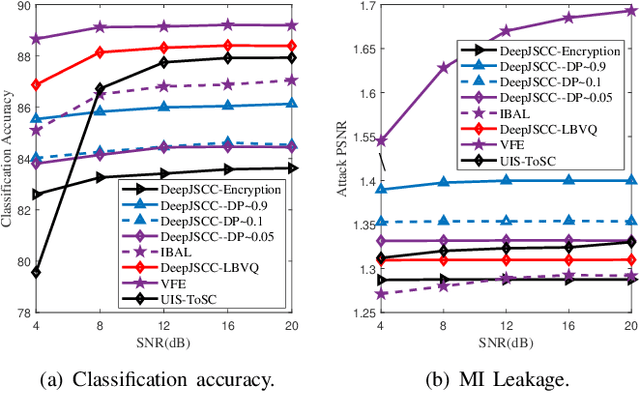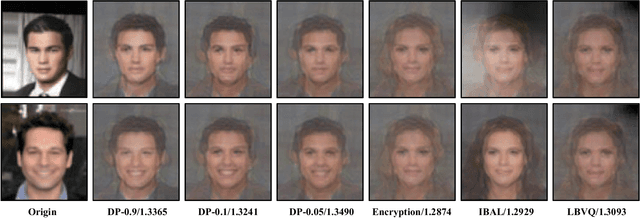Trustworthy Semantic-Enabled 6G Communication: A Task-oriented and Privacy-preserving Perspective
Paper and Code
Aug 08, 2024



Trustworthy task-oriented semantic communication (ToSC) emerges as an innovative approach in the 6G landscape, characterized by the transmission of only vital information that is directly pertinent to a specific task. While ToSC offers an efficient mode of communication, it concurrently raises concerns regarding privacy, as sophisticated adversaries might possess the capability to reconstruct the original data from the transmitted features. This article provides an in-depth analysis of privacy-preserving strategies specifically designed for ToSC relying on deep neural network-based joint source and channel coding (DeepJSCC). The study encompasses a detailed comparative assessment of trustworthy feature perturbation methods such as differential privacy and encryption, alongside intrinsic security incorporation approaches like adversarial learning to train the JSCC and learning-based vector quantization (LBVQ). This comparative analysis underscores the integration of advanced explainable learning algorithms into communication systems, positing a new benchmark for privacy standards in the forthcoming 6G era.
 Add to Chrome
Add to Chrome Add to Firefox
Add to Firefox Add to Edge
Add to Edge